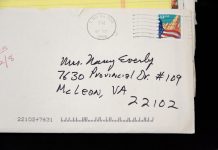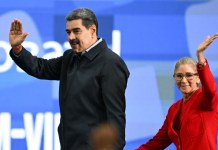“I wear heels, not due to fashion, but so that every time something does not go our way, I could hit them harder,”. This was the “diplomatic” phrase, said during a speech to the US-Israel Committee on public relations, by Nikki Haley who commenced her work at the end of 2016 as a permanent representative of the United States to the United Nations.
Two years later, Haley leaves this post to his successor, State Department spokesman Heather Nauert, whose approval at the State Department is expected to be officially announced very soon – a difficult legacy in the form of a deep crisis in which relations between the United States and global organization.
Given that the current US administration has repeatedly stated that America’s interests are more important to it than multilateralism, it is not surprising that the US ambassador to the UN preferred financial and political pressure to diplomacy and the search for mutually acceptable conditions.
However, it is already clear that such a course does not justify itself at the UN. Ultimately, UNESCO and the HRC continue to function, and UNRWA is gradually finding new sponsors. The United States did not achieve concessions from other member countries of the organization with its demarches.
Even the achievement of the US President Donald Trump, as a meeting with the North Korean autocrat leader Kim Jong-un, Haley managed to turn into a cause for controversy in the UN Security Council. The United States unexpectedly refused to accept the draft Security Council statement in support of the US-North Korean summit proposed by Russia and China – it was not in the style of the United States to loosen the grip.
Now the European partners are already openly expressing incomprehension about blocking the US humanitarian exemptions from the sanctions imposed on the DPRK.
Nikki Haley vs Hamas
“I want to personally take a moment and ask my Arab brothers and sisters: is the hatred so strong? Is the hatred of Israel so strong that you are ready to defend a terrorist organization that directly harms the Palestinian people?” – Hailey addressed the General Assembly last Thursday, proposing to adopt an unprecedented resolution condemning the Palestinian movement Hamas. This project arose after Haley announced her resignation and was clearly intended to be a triumphant moment in her career.
Her speech, as always, was eloquent and bright, an example of oratorical skill. But experienced diplomats will tell you that public speaking is only the tip of the iceberg, and at the heart of the UN, like any international organization, is behind-the-scenes backstage work and private consultations. And in this case, Haley failed to work – she could not prepare the necessary ground for the adoption of the resolution.
So her speech remained spectacular, but it still failed – the resolution was not adopted, and the General Assembly demonstrated its attitude towards the outgoing US ambassador.
What’s next?
“In our country, there are disputes whether Russia is our friend. In fact, this is the wrong question, since Russia will never be our friend. We don’t want to be a friend to someone we cannot believe.” Is it possible to imagine another diplomat issuing such ultimatums?
However, Haley, like her predecessor Samantha Power and successor Heather Nauert, is not a career diplomat. All the time of her work in the UN, it was felt that she remains a politician seeking to keep the position of the internal audience.
According to a number of diplomats, it was Haley’s overly harsh and self-willed position that ultimately cost her the permanent representative of the United States. However, from the very beginning, no one doubted that she had big ambitions, and it is possible that if not in two years, then in six years we will still see her in the presidential race.
As for Nauert, about the nomination of which candidacy for the post of US Permanent Representative to the UN, Trump told reporters on Friday, she is new to big diplomacy. It is not yet clear whether there is a strong character behind her pleasant appearance, capable of withstanding battles in the organization. But one thing is clear now: unlike Power and Haley, she is unlikely to get a place in the office of the US president, which means she will have less opportunity to conduct an independent policy.
Other News at EurAsian Times
- Japan to Partner India to Counter Rising China Military Power
- Why is Japan Unhappy with Bullet Train Project in India?
- High Risk for Companies Investing in One Belt One Road Projects (OBOR)?
- From Asia to Africa, India-Japan Partnership Aggressively Countering China
- CPEC Loan to Pakistan Soars to Whopping $62B: ADB




